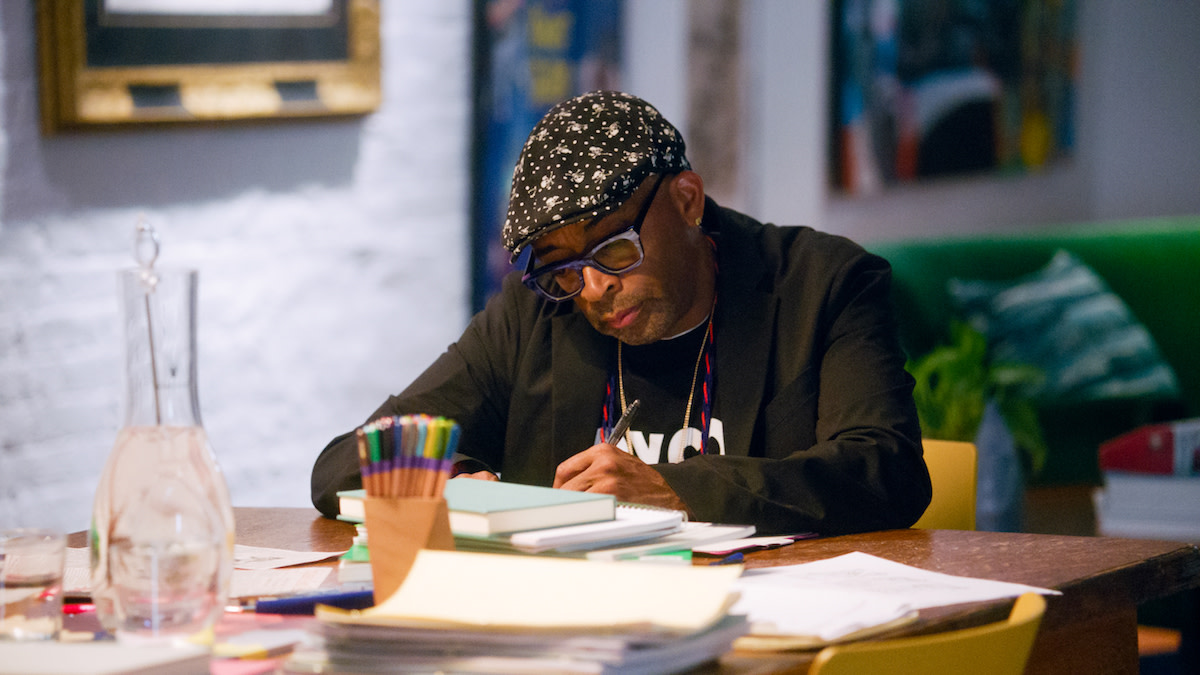Spike Lee’s 5 Tips for Developing Strong Characters
Written by MasterClass
Last updated: Jun 28, 2021 • 4 min read
In a movie, well-rounded, complex characters take an audience on an emotional journey. While writing a compelling character description is a solid start, creating memorable characters requires considerable insight and consideration. If you're a first-time screenwriter learning the art of developing great characters, there’s perhaps no better guide than writer and director Spike Lee.
Learn From the Best
A Brief Introduction to Spike Lee
Spike Lee first captivated our cultural consciousness in 1986 with his debut film, She’s Gotta Have It, a story about a sexually empowered woman in Brooklyn and her three lovers, told in black and white. Over his long and varied career, Spike has often drawn from the well of his own life, which encompass everything from historically Black colleges and universities, colorism in the Black community, culture clashes in Brooklyn, love and jazz, interracial relationships, and addiction. Spike Lee continues to make movies—and make moves: In 2010, the Library of Congress selected Malcolm X for preservation in the National Film Registry, and his most recent film is 2020’s Da 5 Bloods.
What Is Character Development?
In screenwriting, character development is the craft of giving a character a personality, depth, and motivations that propel them through a story. Character development is also defined as how a character evolves over the course of a story. Good screenwriters develop characters who are unique and three-dimensional, with personalities and backstories that make them relatable. A character’s motivations inform their actions and decisions, creating the narrative arc.
Spike Lee’s 5 Tips for Developing Strong Characters
Director Spike Lee's advice for creating characters is backed by decades of masterful writing. Below are some of Spike’s tips for developing strong characters.
- 1. Give each of your characters a distinctive voice. "Young writers tend to have a lot of characters saying the same thing. So it's very important to have a distinction between your characters. Because if everybody is the same, there's going to be no conflict." Spike recognizes that strong characters have unique backstories, personality traits, mannerisms, quirks, and internal conflicts. As you write your screenplay, make sure that each character thinks and speaks in a manner that is unique to them.
- 2. Give some characters an unsavory point of view. "There are horrible things that you might have your characters say. That is not you saying that. That is the character." It takes courage to create fictional characters whose opinions are wildly different from your own, but you have to trust that an audience will know that a character's personality doesn't necessarily reflect the writer's personality. When you’re developing characters with character flaws, you can't still use your own personal experiences to inform your writing; this ensures that your characters are as authentic as possible, even if they are unlikable.
- 3. Write two characters who are at odds and yet both somehow right. Spike demonstrates this perfectly in his 1989 classic Do the Right Thing when activist Buggin’ Out (Giancarlo Esposito) starts an argument with pizzeria owner Sal (Danny Aiello) about the wall of fame at his restaurant. Buggin’ Out points out that it's shameful for Sal to only put photos of Italian Americans on his wall when all of his customers are Black. Sal retorts by saying that since he owns the business, he decides whose photos are on the wall. "When you think about it, they're both right," says Spike. "For me, that makes it dramatic: When both people have beliefs, and they're both right, and they come head to head."
- 4. Spend time alone with your characters. "I think that for writers, you've got to really put aside time to write. It's just really you there and your characters and your story. That's a very special time, and you should treat it as such." Whether you're fleshing out main characters or minor secondary characters, good character development requires time and focused attention. When you sit down to write, remove all distractions—especially your smartphone. Be experimental. Let your mind wander. This is a necessary, sacred time to get to know your characters.
- 5. Write characters inspired by your research. “You got to do the work even before you start to write the actual script. I don't know of any good screenwriter that doesn't do research for the project they're working on. That's just part of the job." Spike’s approach to research to immerse himself in the time period of his script—he listens to the music of the time, reads books and magazine articles, and watches documentaries. Even if you’re writing characters who are entirely fictional, researching real-life people and events related to your subject matter is a great way to brainstorm ideas for interesting characters.
Want to Learn More About Film?
Become a better filmmaker with the MasterClass Annual Membership. Gain access to exclusive video lessons taught by film masters, including Spike Lee, Mira Nair, David Lynch, Shonda Rhimes, Jodie Foster, Martin Scorsese, and more.
